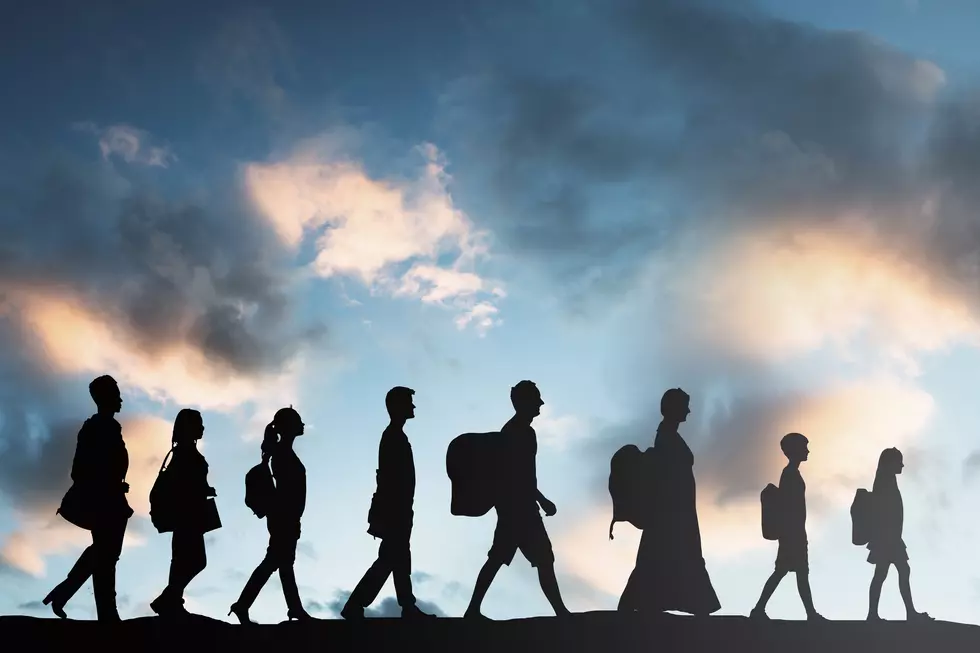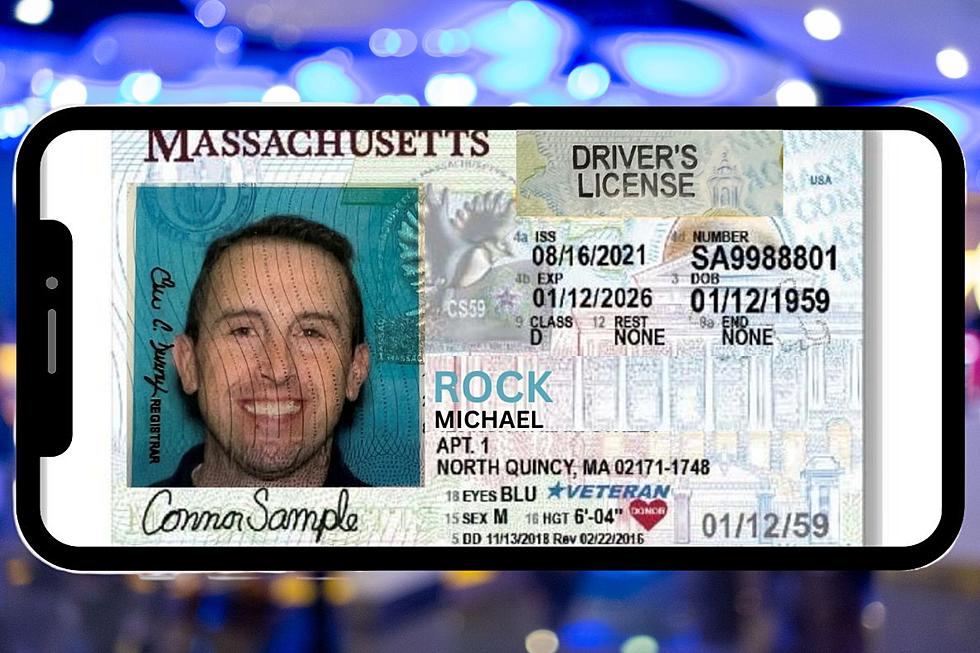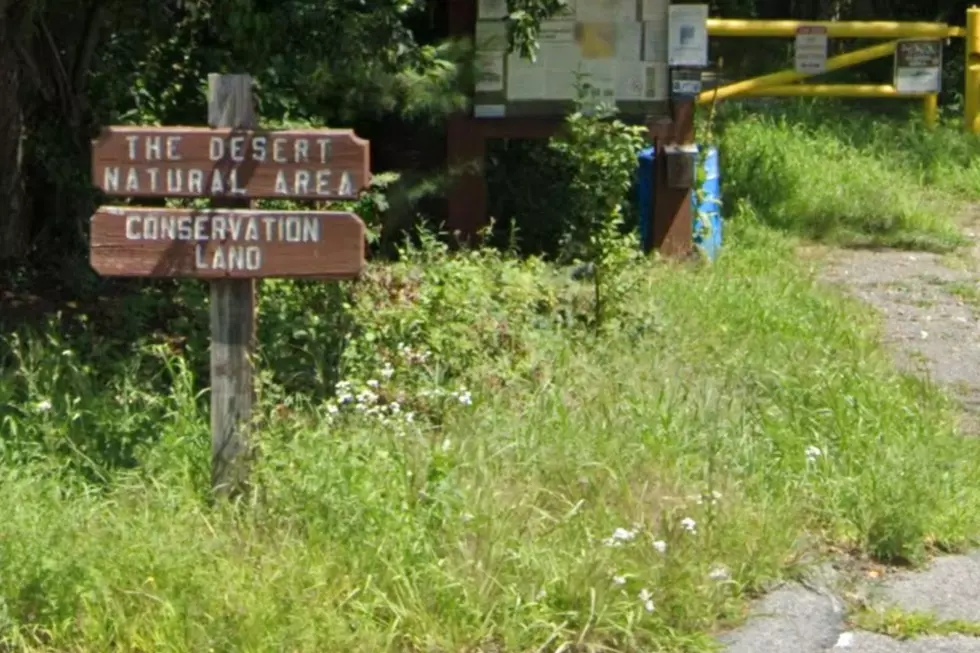
Mass. Planners Expecting Arrivals Of 900 Afghans
Massachusetts expects to welcome about 900 evacuees from Afghanistan, and while the specifics of their arrival remain unknown, efforts are underway to prepare for their arrival and resettlement and to potentially extend public benefits from the state.
Gov. Charlie Baker, in a Thursday radio interview on GBH, said the resettlement will happen "over time," describing it as "much more of a going-concern activity than something where all of a sudden there's going to be a bunch of folks from Afghanistan."
The Baker administration said it is still awaiting details on when and where the evacuees would arrive, but said it has been informed by federal officials that the state could receive up to 900 people.

On Wednesday, State Department spokesperson Ned Price said the federal government is looking to move "as quickly and efficiently as we can" to resettle thousands of Afghans now at U.S. military bases for medical processing and other final steps.
Massachusetts, according to Baker's office, is coordinating with the federal government and local nonprofits that serve refugees. Groups are at work in various parts of the state to help with eventual relocations, with eyes toward basic needs as well as cultural differences and potential government support.
In the Merrimack Valley, UMass Lowell is among the groups working with the International Institute of New England, one of six resettlement agencies in Massachusetts.
In Bristol County, the Attleboro Council on Human Rights has been communicating with Lutheran Immigration and Refugee Services, according to Congressman Jake Auchincloss' office. Auchincloss plans to participate in a Saturday donation drive the council is hosting to collect resources and supplies for Afghans coming to Massachusetts.
The State Department is partnering with Welcome.US, a national initiative of Rockefeller Philanthropy Advisors that aims to offer "a single point of entry to channel the outpouring support of Americans who want to get involved by donating supplies, money, or time to frontline organizations; offering temporary housing; or sponsoring Afghan families as they start new lives in the United States." Former Gov. Deval Patrick serves on the campaign's National Welcome Council.
One challenge is that many of the Afghan evacuees will be categorized as humanitarian parolees, a designation that leaves them ineligible for most public benefits, said Jeff Thielman, president and CEO of the International Institute of New England.
Thielman said he hopes to work with state lawmakers and Baker to pass legislation providing direct assistance to resettlement agencies and to the Afghan families not eligible for benefits. He said he expects the ultimate number of people relocating to Massachusetts will land higher than the initial 900.
"We're going to need help from the state government," he said. "I think there's going to be support for help from the state government, because the people coming from Afghanistan were evacuated by the United States military, and to honor the work of the military in their final days in their 20-year mission in Afghanistan requires all of us to come together — state government, federal government, private donors — to welcome these people and help them resettle in this state, safely and with dignity.
Thielman spoke to the News Service by phone from the Institute's Lowell office, where he said in the conference room next door to him, case managers were working with an Afghan doctor, a woman who "got to us before the fall of Kabul."
The organization, he said, has hired two case managers that speak Dari and Pashto, the official languages of Afghanistan, and has been fundraising, working with community partners and talking with landlords and hotels about housing.
"No organization resettles people with only federal dollars," Thielman said. "The community gets involved."
Axios reported Thursday that the initial group of evacuees includes around 37,000 Afghans, and the number that states are expected to receive ranges from 10 each in Alabama and Mississippi to 5,300 in California.
About 150 people are expected to settle in Lowell or within 100 miles of the Mill City, said Patricia Coffey, the director of community relations at UMass Lowell.
Coffey said she's been "in constant contact" with the International Institute since the end of August, and that students and faculty have been discussing short- and longer-term ways the university can help.
She said some potential opportunities include internships, family support events and mentorships. Coffey said she's also been working with a friend connected with the Andover Islamic Center to collect household and personal items as a sort of "welcome package" for new arrivals. A room in her apartment, she said, is "half-filled now with Amazon boxes" from an online wishlist.
"This large influx of people, it requires all of us — whoever 'us' is — to come together as individuals, as universities, community colleges, schools, local government, and so far I haven't seen that not happening," she said. "I've seen kindness."
Lowell, home to the second-largest Cambodian American community in the U.S., has hosted refugees from Southeast Asia for decades. Phitsamay Uy, co-director UMass Lowell's Center for Asian American Studies and herself a refugee from Laos, said lessons from past major resettlements can be applied to help the Afghan evacuees.
For instance, she said it would make sense for arriving students to be concentrated among a few schools instead of spread throughout the district, to make it easier to provide language interpretation and answer parent questions.
Evacuees' needs will differ depending on their circumstances, and any assistance should be "contextualized to the Afghan community," Uy said. Families who are Muslim may need food and clothing that align with their religious beliefs, and a family where a parent worked with Americans may not need translation services, but could still need help navigating systems that work differently in their home country.
It will also be important to keep mental health in mind throughout the resettlement process, Uy said.
"It's traumatizing to be just picked off and dropped off in a totally different community and society," she said. "The trauma of loss, the trauma of the loss of your home, your community, your friends, everything you knew and grew up with."
— Katie Lannan, State House News Service
LOOK: Stunning vintage photos capture the beauty of America's national parks
RANKED: Here are the most popular national parks
More From WBSM-AM/AM 1420









